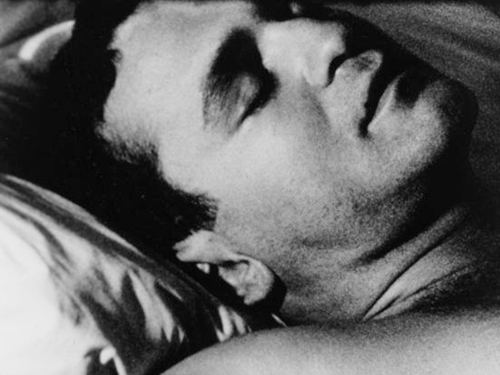
“Andy Warhol is taking cinema back to its origins, to the days of Lumière, for a rejuvenation and a cleansing. In his work, he has abandoned all the ‘cinematic’ form and subject adornments that cinema had gathered around itself until now. He has focused his lens on the plainest images possible in the plainest manner possible. With his artist’s intuition as his only guide, he records, almost obsessively, man’s daily activities, the things he sees around him.
A strange thing occurs. The world becomes transposed, intensified, electrified. We see it sharper than before. Not in dramatic, rearranged contexts and meanings, not in the service of something else (even cinéma vérité did not escape this subjection of the objective reality to ideas) but as pure as it is in itself: eating as eating, sleeping as sleeping, haircut as haircut.”
Jonas Mekas1
“The first Andy Warhol movie I saw was Sleep. It was June 1964 at the Cinema Theatre on Western Avenue in Los Angeles, the birthplace of Midnight Movies. Sleep didn’t begin at midnight, it began around 6.45pm. It’s a long movie, as I recall, it ended around 12.30am. There were about five hundred people in the theatre when the film began; there were about ten left when the movie ended. I was one of them, although I didn’t watch the whole movie: after four hours or so, I slipped out for a snack at the coffee shop around the corner.”
Thom Andersen2

